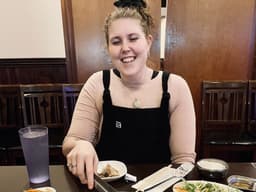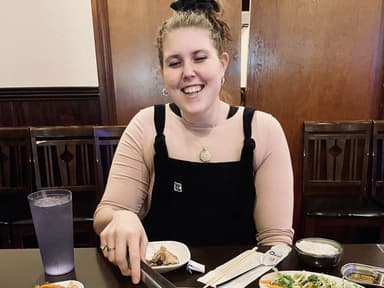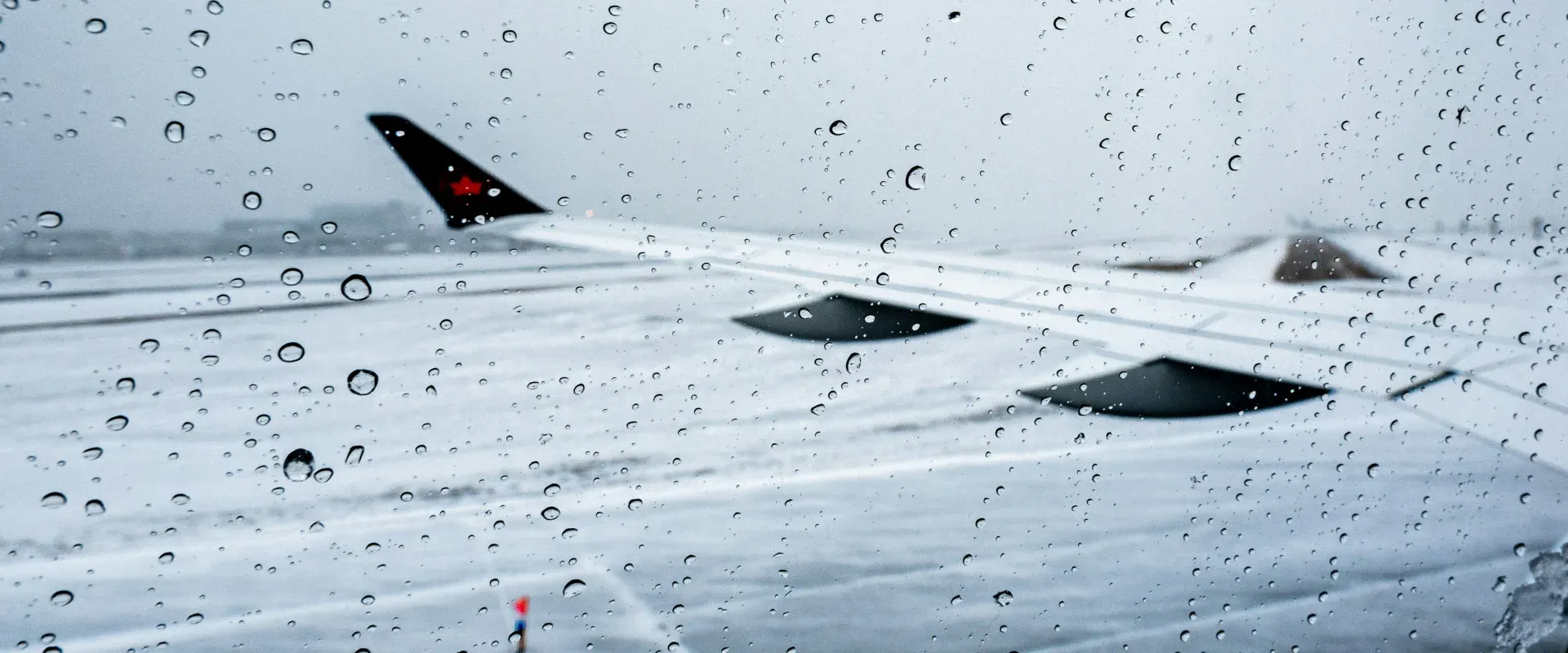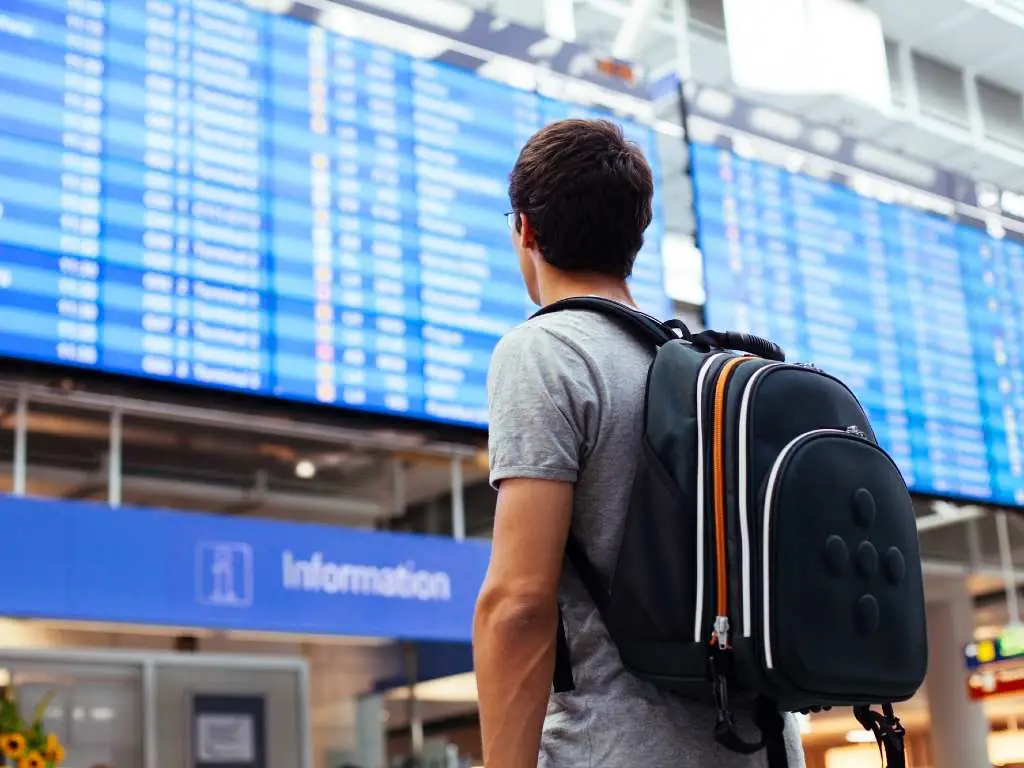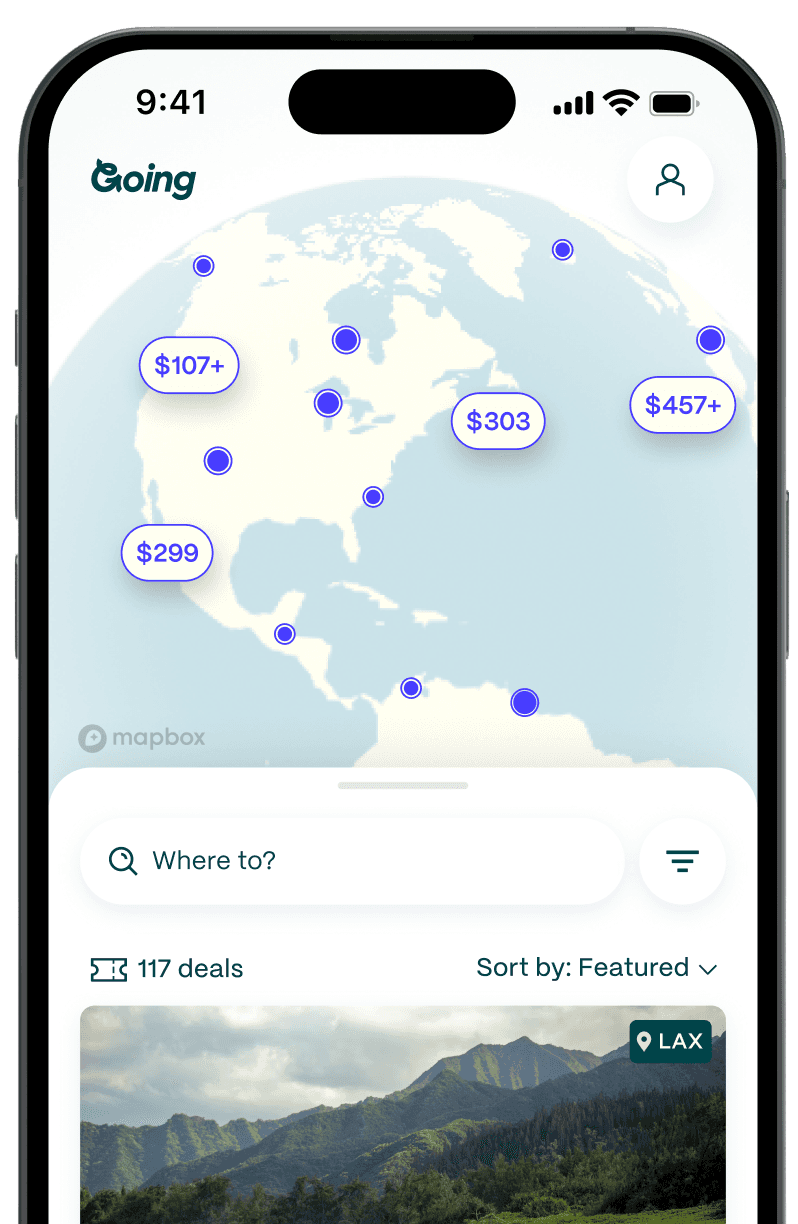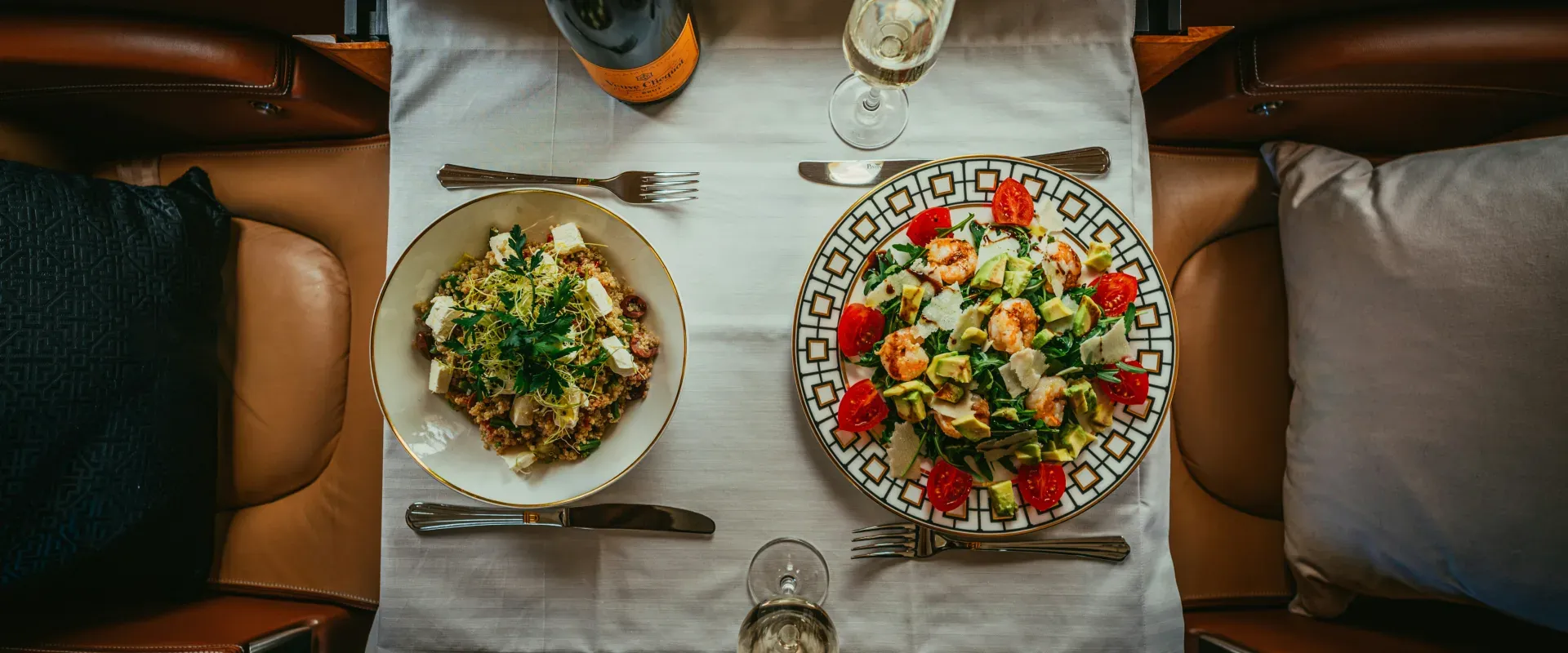
What To Know About Traveling With Food Allergies: Expert Tips and Resources
Navigating unfamiliar foods in foreign countries can feel overwhelming. Add in food allergies and the whole thing can feel downright scary. But, with preparation, you can travel safely and confidently with food allergies. This guide will walk you through how.
1. Confront the emotional journey
It's normal to feel anxious about traveling with allergies, with thoughts springing to the surface such as:
- "What if I can't communicate my allergies effectively?"
- "What if I accidentally consume something dangerous?"
- "What if I have a reaction far from medical help?"
These concerns are common—even inevitable—especially when language barriers, jetlag, and cultural differences are thrown into the mix. The key is transforming that anxiety into action through preparation and knowing that, no matter what, you’re capable and will be okay.
Take a deep breath, know that you’ve got this, and let’s get into the details.
2. Consider travel insurance
Depending on the severity of your allergies or gastrointestinal/autoimmune issues, consider getting travel insurance. It won’t be necessary for everyone, so don’t feel obligated. But, if you opt for travel insurance, here are some things to keep in mind:
- Look for coverage for your specific allergies and/or conditions: Many standard policies don't automatically cover pre-existing conditions, which can include allergies.
- Check for emergency evacuation: Ensure your policy covers medical evacuation if you need specialized treatment.
- Read the fine print on food-related incidents: Some policies consider allergic reactions "preventable" and may limit coverage.
- Consider specialized insurance: Companies like Allianz, World Nomads, and InsureMyTrip offer plans with better coverage for travelers with medical conditions.
- Document your condition: Get a letter from your doctor describing your allergies and prescribed medications to submit with any insurance claims.
- Check overseas coverage limits: Make sure your insurance provides adequate coverage for potential hospitalization in your destination country.
Finding medical assistance abroad
Before departing, research clinics/doctors near where you’re staying. It’ll save you the hassle in the future should you need to visit. Also consider:
- International Association for Medical Assistance to Travelers (IAMAT): Provides directories of English-speaking doctors worldwide.
- Local emergency numbers: Save these in your phone, and write them down on a card to put in your wallet.
- Embassy contact information: Your country's embassy can help in medical emergencies.
- Know the words for "hospital" and "emergency" in your destination's language.
- Local allergy specialists: Research allergists in major cities along your route.
3. Download essential apps and resources
If you’re reading this, you’ve probably been in this situation: You arrive at your destination and spend hours on Google Maps, forums, or social media looking for a restaurant that accommodates your allergies. It eats into the time that could be spent exploring, seeing friends or family, and experiencing new things. Luckily, there are apps to save you time.
Allergy Translation Resources
- Equal Eats: Digital and physical translation cards in 50+ languages
- SelectWisely: Wallet-sized allergy cards with medical terminology
- Allergy Force: Tracks symptoms and helps locate nearby hospitals
- Allergy Translation: Free printable allergy cards in multiple languages
Food Finding Apps
- Find Me Gluten Free: Crowd-sourced database of gluten free–friendly restaurants worldwide
- HappyCow: Vegetarian and vegan restaurant finder (often good for dairy allergies)
- Spokin: Personalized recommendations based on your specific allergies
4. Note continent-specific resources
Having the right regional resources at your fingertips can make all the difference. Depending on where you’re traveling, take note of the following organizations, apps, and services across different continents to make your food allergy journey smoother.
Europe
Europe has some of the most comprehensive food allergen labeling laws in the world, making it relatively easier to navigate with food allergies. The EU requires clear labeling of 14 major allergens on packaged foods, which is helpful for travelers.
- United Kingdom: Allergy UK offers translation cards and country-specific advice. Their website has downloadable resources specifically designed for travelers.
- Italy: The Italian Celiac Association (AIC) maintains an app with over 4,000 certified gluten-free restaurants. (Italy has one of the highest rates of celiac disease in Europe, so awareness is high.)
- France: Association Française des Intolérants au Gluten provides dining guides focusing on gluten-free options in major tourist destinations.
- Spain: FACE (Federación de Asociaciones de Celíacos de España) app helps you locate allergen-free restaurants throughout the country.
- Ireland: Coeliac Society of Ireland runs a dining card program with partner restaurants that makes it easier to find safe places to eat.
- General European resources: Many supermarket chains, such as M&S Food Hall, Lidl, and Aldi, have extensive "free-from" sections that can be lifesavers when self-catering. Wolt is a great food ordering app as well.
Asia
Asia presents unique challenges, with soy, fish, and shellfish being prominent in many cuisines, but awareness is growing in tourist areas.
- Japan: Japan Gluten Free and GF Guide Japan offer extensive resources for celiacs and those with wheat allergies.
- Thailand: Threads on Reddit, such as r/ThailandTourism, provide resources like restaurant cards and location-specific advice. Thailand is quite accommodating for many allergies due to the tourism industry, but it can be tricky for someone who has celiac disease in particular, as there’s gluten in many sauces/base dishes.
- Singapore: Food Allergy Support Singapore provides local resources and maintains a list of allergy-aware restaurants.
- China: SelectWisely offers specialized Chinese translation cards with regional dialect options.
- Regional considerations: Be aware that allergy patterns differ across Asia. For example, peanut allergy is less common in most Asian countries (except Japan), while shellfish and wheat allergies are much more prevalent.
For specific information on traveling to Japan with a food allergy, read our guide.
North America
North America has strong awareness of food allergies and many dedicated resources to help travelers.
- United States: Food Allergy Research & Education (FARE) is the largest organization supporting Americans with food allergies, offering travel tips and chef cards in multiple languages.
- Canada: Food Allergy Canada provides comprehensive travel resources and even has a travel blog with first-hand accounts from allergy travelers.
- Mexico: AllergyTravels.com maintains Mexico-specific guides with restaurant recommendations and translation help.
- Regional apps: Apps like FindMeGlutenFree and AllergyEats have extensive coverage throughout North America, making restaurant hunting much easier.
Africa
While food allergy awareness varies widely across Africa, there are growing resources to help travelers.
- South Africa: The South African Allergy Foundation offers resources for travelers. South Africa has more developed allergy awareness than many other parts of the continent.
- Safari companies: Many safari companies, such as Africa Expedition Support, now specifically cater to dietary restrictions and allergies—just be sure to communicate needs well in advance.
- Travel tips: In less-developed regions, consider working with hotels directly, bringing translation cards, and packing emergency foods.
- Medical resources: The International Association for Medical Assistance to Travelers (IAMAT) provides information about clinics and hospitals throughout Africa.
South America
Food allergy awareness is growing in South America, especially in major tourist destinations.
- Brazil: The Brazilian Association of Allergy and Immunology (ASBAI) provides resources for food-allergic travelers.
- Argentina: The Argentina Food Allergy Association offers cards and restaurant recommendations.
- Regional awareness: Be aware that certain foods, such as corn, manioc (aka cassava or yuca), and specific seafood, are staples in many South American countries and may require extra vigilance.
Australia & New Zealand
These countries have excellent food allergy awareness and labeling laws.
- Australia: Allergy & Anaphylaxis Australia offers comprehensive travel resources and has a strong food service training program.
- New Zealand: Allergy New Zealand provides dining out cards and has an active support network.
- Labeling: Both countries have strict allergen labeling laws, making grocery shopping relatively straightforward.
Remember: No matter where you're traveling, having translation cards, researching local cuisine ahead of time, and connecting with local food allergy groups can make a huge difference. Every successful meal abroad builds your confidence for the next adventure.
5. Know your options in-flight
Unfortunately, navigating meal selections in the air when you have allergies and/or dietary restrictions is no easy feat, but we still have some tips that can help you.
If you're dealing with one allergy or restriction (e.g., celiac or vegan), it can be possible to safely order a meal in-flight (though not completely foolproof—more on that in a moment). People with multiple allergies or restrictions (e.g., celiac and vegan) should often avoid airline-provided meals, as the risk and likelihood of an airline being able to completely accommodate your needs is low.
Many airlines list their meal options 30 days in advance for special ordering. If there's an option that enables you to avoid your allergens or restrictions, great! Select it, and be sure to advocate for yourself with the flight attendants onboard. If there isn't an option that works, prepare to bring your own food, as that's the safest option.
Keep in mind that no airline gets it perfect or "right" every time. You may have ordered a gluten-free meal and been served bread with your meal, or you may have a nut allergy and been served a meal prepared in the same facility as food containing nuts, therefore risking contamination.
My final words of wisdom on the matter: When in doubt, bring backup snacks.
6. Stay vigilant during your trip
Here are some helpful tips to keep in mind when booking your stay, visiting restaurants, and navigating your destination.
At your accommodation
- Book places with kitchen access when possible.
- Notify staff about your allergies upon arrival.
- Clean surfaces before preparing your own food (bring your own cleaning supplies, if necessary).
- Research nearby grocery stores with safe options.
- Consider using food delivery services, such as Uber Eats or Wolt (available in Europe and Japan) for nights in.
- Label your food clearly if sharing communal refrigerators.
- Ask about breakfast ingredients in advance at hotels.
- Request room cleaning without chemical sprays, if relevant.
At restaurants
- Dine during off-peak hours when the staff has more time to address concerns.
- Show your allergy card to both the server and the chef when possible.
- Ask about ingredients and cross-contamination.
- Start with simple dishes rather than complex ones.
- Look for "allergen-free" sections rather than specific allergen listings.
- Trust your instincts—if you're uncomfortable, it's okay to leave.
- Tip well when staff accommodates your needs (this creates goodwill).
- Choose restaurants with online menus you can translate in advance.
- Consider restaurants catering to religious dietary restrictions that might avoid your allergens.
On the go
- Always carry safe snacks and your emergency medication.
- Use the Google Translate app's camera function to quickly check labels.
- For packaged foods, check the children's section, which often has allergen-friendly options.
- Stay hydrated and well-rested, as fatigue can affect judgment.
- Keep emergency contacts and local hospital information readily accessible.
- Wear a medical alert bracelet in the local language.
- Carry a basic first aid kit with antihistamines.
- Maintain regular meal times to avoid desperate food choices.
7. Learn the local language as it pertains to you
Learning food-related vocabulary in your destination's language can be a lifesaver, especially if you have more than one allergy or condition that can make finding safe food difficult. Here are some things that might help:
Fast-track approach
- Focus on food verbs first: Words like "contain," "allergic," "avoid," and "need"
- Learn names of your specific allergens and related foods
- Practice emergency phrases until they become automatic
- Learn food preparation terms like "fried," "grilled," or "steamed"
Study resources
- Language learning apps: Duolingo, Memrise, and Babbel all have food-related vocabulary sections
- YouTube videos: Search for "[language] food vocabulary" for pronunciation help
- Specialized flashcards: Create custom cards focusing only on allergy-related terms (Anki is great for this practice, as you can record yourself saying the phrases to get used to saying and listening to them.)
- Food documentaries with subtitles: Immerse yourself in food culture and language
Must-know phrases in any language
- "I have a serious/life-threatening allergy to _____."
- "Does this contain _____?"
- "I need to speak with the chef, please."
- "I need medical help now."
- "Where is the nearest hospital?"
- "Cross-contamination is dangerous for me."
- "I cannot eat even a small amount."
- "I am carrying emergency medication."
8. Navigate social situations
Food is central to many cultures and social interactions. We’re not always going to get each situation in a new place right, but the key is to treat everyone as human first and to know that everyone is merely trying their best. Having grace throughout is key. Here's how to navigate those situations.
When dining with others…
- Be confident but kind when explaining your needs.
- Learn how to politely decline food in the local culture.
- Focus on the experience rather than feeling excluded.
- Arrive slightly early (to speak with hosts or restaurant staff) or book ahead of time.
- Have a quick explanation prepared that's culturally appropriate.
- Remember that most people want to help once they understand.
- Discuss plans with travel companions in advance.
- Educate your travel group about your emergency plan.
- Designate an allergy buddy who knows your symptoms and can help.
Cultural considerations
In some countries, refusing food can seem impolite, so be sure to research cultural norms around food refusal before your trip. In many cultures, explaining a medical necessity is better understood than preferences, as allergies are seen as a preference rather than an actual condition.
When navigating around a language barrier, showing gratitude while explaining your limitations goes a long way. Also, don’t be afraid to use Google Translate or a translation card, and be sure to use very simple English, as complex sentences can increase the likelihood of miscommunication.
Find the balance
Be firm about your safety needs without creating unnecessary anxiety—you have to put yourself first and advocate for your needs. Look for ways to participate in food culture safely. For instance, share what you can eat rather than focusing only on restrictions. You’ll feel more included in the activities with others when focusing on what you can participate in.
If possible, research traditional dishes you can enjoy before your trip. For example, in Japan, it is common to stay at a Ryokan where they provide set meals for dinner and breakfast. Researching dishes you can eat and presenting them as substitutes can save the kitchen time, and it enables you to relax knowing you’ll be able to partake in all aspects of the experience.
Finally, consider hiring a local food guide who understands your restrictions. There are a ton of options available when it comes to hiring allergen-friendly tour guides. Check out GetYourGuide, Airbnb, or Google “[City/Country] allergen food guide” to see what all may be out there. Browsing social media for local allergy groups can also be helpful for culture-specific advice.
9. Take action in an emergency
Despite precautions, reactions can still happen. Be prepared to:
- Recognize symptoms early
- Know your personal warning signs
- Don't wait until symptoms become severe
- Use your emergency medication without hesitation
- Follow your doctor's instructions for epinephrine
- Keep medication easily accessible at all times
- Call local emergency services
- Research the emergency number before your trip
- Know how to say "allergic reaction" in the local language
- Communicate clearly
- Show your emergency translation card
- Use universal gestures if necessary
- The phrase "allergic reaction" is understood in most places
- Seek medical attention even if symptoms improve
- Secondary reactions can occur
- Have the address of nearby hospitals on hand
All in all, you’ve got this. Tons of people with food allergies travel successfully every year, and they not only tolerate their trips but love them and travel again.
10. Reflect after your trip
Once you're back home, take time to reflect on what worked well for you, what didn’t, and what you can do next time. By having actionable steps, you’re not only providing yourself with resources but also showcasing your newfound travel expertise.
Document what worked. Create a personal travel guide for future trips. This can be things like recording restaurant names, staff contacts, and successful dishes. Note which translation phrases were most effective, and keep track of safe grocery stores and products. Lastly, save maps with medical facilities you identified, especially if it’s a place you hope to visit again. Having these resources for the future is incredibly helpful.
Note challenges and solutions. Every difficulty is a learning opportunity. Keep in mind:
- Were there unexpected allergens in traditional dishes?
- Did certain phrases or approaches work better than others?
- What would you pack differently next time?
- How could you modify your emergency plan?
Evaluate your preparation process. Ask yourself:
- Did you bring enough safe snacks?
- Was your communication strategy effective?
- Did your medication storage approach work?
- Were there tools or resources you wished you had?
Celebrate your success: You traveled safely with allergies!
- Recognize the planning and courage this required.
- Share your positive experiences with others.
- Begin planning your next adventure with newfound confidence.
- Use your experience to encourage other allergy travelers.
Final thoughts
Traveling with allergies isn't about eliminating all risk—it's about managing it effectively and taking each moment in stride. Approach your travels with:
- Preparation, not paranoia: Be thorough in your planning, but don't let fear dominate your experience. Let each successful meal abroad build confidence for the next one.
- Vigilance, not anxiety: Stay alert to potential allergen exposures without letting it overshadow the joy of travel. Balance awareness with enjoyment.
- Confidence in your ability to handle situations as they arise: You've prepared thoroughly, you have the tools you need, and you know what to do if challenges occur.
- Flexibility and adaptability: Sometimes your first choice restaurant won't work out, or a planned meal falls through. Have a backup plan to reduce stress.
- Cultural appreciation beyond food: Remember that experiencing a culture goes beyond cuisine—architecture, art, landscape, music, and people are equally valuable parts of travel.
- Connection through communication: Your allergy conversations can become meaningful cultural exchanges that create memorable connections with locals.
The world is waiting for you, and your allergies don't have to hold you back. With careful planning, clear communication, and a mindset of gratitude and curiosity, you can enjoy safe and memorable travel experiences.
Remember: You're not just a traveler with allergies—you're an adventurer who navigates the world a bit differently. Bon voyage and safe travels!
Last updated May 21, 2025
